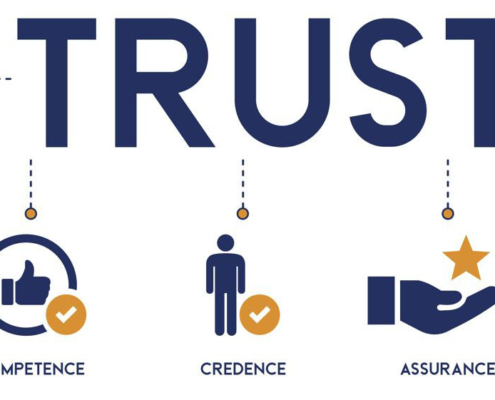How to Enforce a Verbal Contract When Self-Employed
When an individual is self-employed, either identifying as an entrepreneur or freelancer, he or she has a lot of responsibilities. They function as the boss, the accountant, the intern, the ambassador, and more. In the end, the success of the business depends entirely on the performance of this one individual. When the entrepreneur makes a promise or quotes a price of a service or product, he or she is putting their reputation at risk. If the deal falls through or is not delivered as promised, their business may suffer. A common issue that comes up is how a self-employed entrepreneur deals with verbal contracts and the associated conflicts that may arise from a breach of contract.
Nowadays, with instant feedback available thanks to the Internet, a customer who feels wronged can log onto Yelp or another review website and launch a verbal attack on the business. This attack will be seen by all other customers and in the worst circumstances, may even go viral. Imagine that the issue was down to a simple misunderstanding. Before a business owner can settle the issue with the customer, their business may have suffered irreparable damage.
While there are a lot of advantages to being one’s own boss, there are also negatives. As the sole owner and operator of one’s business, the entrepreneur must assume all the risks of making deals. For a solo entrepreneur, it is typical to make deals over the phone, agree verbally to an impromptu deal in a coffee shop, or sign a deal using a handshake. To move at the speed of one’s business, it is not always possible to have the formality of a written contract. That said, verbal contracts, while convenient, can create potential problems when deals fall through. This can make life difficult for the solo entrepreneur, who should become familiar with the rights and responsibilities involved in making verbal contracts.
An entrepreneur may wonder whether he or she is liable for a broken promise. Is a verbal promise even enforceable by law? What about the business owner? If the customer or vendor violates a written contract, is there any recourse?
The answer to these questions depends on the circumstances.
From a legal perspective, verbal contracts are as legitimate as written contracts. When it comes to any kind of contract, three elements are required to make it valid. These elements include the following:
- An offer
- An acceptance of the offer
- Consideration
Consideration is an exchange that is reached after rounds of bargaining. It normally proceeds as “I will do this for you, if you pay me X amount.”
The problem with verbal contracts may be simplified to overcoming the burden of proof. If a business owner wishes to sue for breach of contract, then he or she will need to prove that the contract existed at all. This can be difficult to prove if the deal was made over the phone or during a spontaneous chat in a coffee shop. Were there any witnesses to the conversation? Are there any documents that may provide evidence of the deal? Without witnesses or documentary evidence, a lawsuit may descend into a “he said, she said” scenario, which will not do a good job at convincing a judge.
Generally, the best way to prove that one had a verbal contract with another party is to show evidence through actions that were taken. For example, perhaps a vendor delivered a certain number of items to the business owner. Why would the vendor have done that if there was not a deal of some kind? The logical conclusion is that vendor had a verbal contract with the business owner to deliver a certain number of items.
Thus, verbal contracts may be proven by actions, rather than written words.
Exceptions to the Enforceability of Verbal Contracts
A verbal promise to perform a service or provide a product is a valid contract in California. That said, there are certain kinds of contracts that must be in writing in order to be legally valid. These exceptions to the rule are included in what is known as the Statute of Frauds. These exceptions include agreements to sell real estate or property, IOUs, and any contract that cannot be performed within one year.
Also, each state has its own Statute of Frauds. If an individual plans on making verbal agreements either now or in the future, he or she should research their state’s statutes to learn how to properly and legally structure contracts. Just a small amount of research can save an entrepreneur thousands of dollars down the road by helping them avoid legal issues.
By following a helpful list of guidelines, an entrepreneur can ensure that their next verbal agreement does not result in a “he said, she said” scenario:
- An entrepreneur should immediately archive and save all documents related to the deal, such as emails, text messages, faxes, quotes, and written exchanges. Even if the business owner does not have the deal in writing, these documents can help one overcome the burden of proof.
- Take notes at the time of the contract’s creation and preserve them.
- Create a written document outlining the terms of the agreement.
- Ensure that any witnesses make a note of what was agreed.
Of course, the best way to avoid a botched verbal deal is not to make one in the first place. It is always best to get a contract or deal in writing. People’s memories are often unreliable, and individuals remember events differently. It is also an unfortunate reality that people will lie to serve their own purposes. Therefore, it is best to ask clients to sign basic paperwork documenting an agreement. If anyone appears unwilling to sign a written contract, then they are likely not be trusted with the deal in the first place.
In addition, if a project has a set fee, then it is best to ask a client to pay a portion up front. This is a normal practice, so if a customer is reluctant to pay up front, then it may be best not to do business with them. In general, it is best to avoid opportunities for disagreements, because in the business world, a lawsuit often ends in losses for both parties.
































